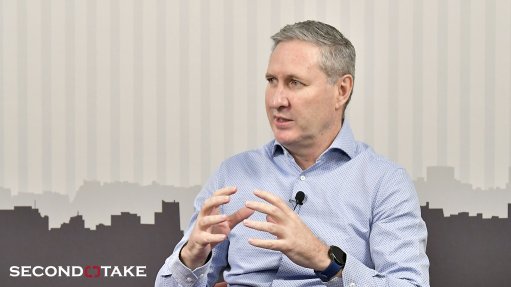Challenges of Change: Leading in Extraordinary Times by Adelle Wapnick, Executive Coach and Director at FutureNow Consulting
This article has been supplied by the author and has not been written or solicited by Creamer Media. It may be available only for a limited time on this website.
By executive coach, Adelle Wapnick
Hardly a year goes by when something doesn’t fundamentally shift. It just keeps coming. Whether it’s global or local politics, a worldwide pandemic and change in the way we work, climate crises, markets crashing or debt ceilings raised, something changes, disrupting business models overnight, even turning entire industries on their head - essentially causing fear, and occasionally, chaos. In a matter of weeks our attention was diverted from the gloss of the Metaverse to ChatGPT and generative AI, which some warned could pose ‘existential risk’ to humanity, causing panic even amongst technophiles. As executives, it is crucial to understand the types of challenges that change brings and how to navigate them effectively. It is the collective behaviours or dynamics at play, within and between individuals and groups, that leaders must fathom in their attempt to foster adaptive behaviours.
Understanding the Landscape of Change
This unprecedented speed of change itself presents a significant challenge. It demands rapid responses. Our ability to adapt is probably the most desired outcome, and yet humans are the least adaptable species. Unlike the animal kingdom and natural phenomena, who in their eco-system will adapt and fit together into a larger system making space and room to effectively co-exist, humans struggle. The systems concept refers as much to animals as it does our bodies, solar systems, nations, organisations and even teams. Disruptions to any human system causes instability and disequilibrium, with which we are ill-equipped to deal.
Psychological and Emotional Impact
The same increased pace can lead to psychological pressure and heightened negative emotions, like fear and anxiety. Neuroscience illustrates that increased adrenalin and the resultant anxiety may lead to diminished executive functioning often threatening our well-being in unexpected ways. As such, change brings with it widespread consequences, often destabilising individuals. The tone of change can go a long way in mitigating that instability and stress. The language common for all providing safety in its coherence and consistency; and the presence of leaders, not only in communication but in actual physicality all assist. Change happens mostly by speaking to people’s feelings, and emotions and feelings aren’t the biggest topic of conversation in business!
The Role of Leadership
Understanding what outcome would make the effort and risk worthwhile is an important factor. There’s no reason to take the risk of change unless it has real purpose, otherwise it is unlikely to be successful nor sustainable. Leaders therefore must differentiate between changes imposed on them externally, and those decisions to change that are planned and more deliberate. So that, the nature, importance and speed of the change becomes important to consider before embarking upon it, thereby eliminating any false urgency and undue pressure.
Already developed dynamics and patterns in the organisation will be indicators of how culture plays a role or affects change. The appearance of the implicit, pervasive beliefs and behaviours in existence will often determine the degree to which it is embraced or resisted. Leadership plays a pivotal role in facilitating the culture and politics of change. Emotional intelligence of the leading team is paramount. High levels of self- and social-awareness contribute to that intelligence. Tasha Eurich author of Insights, did research on awareness levels and concludes that although 80% of leaders believe they are self-aware, only 10% actually are! Hence the need to highlight this above all other contributors to EQ.
Mastering Adaptive Leadership
Adaptive leadership skills are what set great leaders apart: these skills represent the otherwise intangible qualities that great leaders have in common. Ironically, as with self-awareness, adaptive leadership skills are what leaders overestimate their abilities in the most. As an iterative process adaptive leadership requires observing and interpreting patterns and then designing around those to address identified adaptive challenges. It is about diagnosing the essential from the expendable and bringing about a real challenge to the status quo by developing the necessary capabilities to match the organisations aspirations in that change.
These skills go deeper than just the core skills of strategy and implementation – besides EQ mentioned earlier, they include organisational justice and information sharing with concern for the outcomes, development of character and lifelong learning. Skills harder to identify, quantify and master. There are many who believe that because the tides are shifting so swiftly the problems faced are too new for old wisdom. While the cumulative weight of experience might make it harder to change, it’s the wisdom of old, found in these very skills – the relationship management, fairness, justice and inclusion - that are bound to ensure ulitmate success.
Changing the behaviours of people isn’t just the biggest challenge, it's the most important if trying to compete in this turbulent world. If not handled appropriately change can lead to distraction, attrition and loss of credibility. For some it might even lead to burnout. By embracing a purpose-driven approach to change, leaders can steer their organisations towards success using their strength of character and collective sound judgment. In their book Tomorrowmind, by way of example, Kellerman and Seligman describe Graeme Payne having a tomorrowmind, as ‘….always running toward challenge and [finding] the opportunity to gain mastery amid chaos’. Find the courage and exercise curiosity to gain such mastery for the change your organisation needs.
Comments
Press Office
Announcements
What's On
Subscribe to improve your user experience...
Option 1 (equivalent of R125 a month):
Receive a weekly copy of Creamer Media's Engineering News & Mining Weekly magazine
(print copy for those in South Africa and e-magazine for those outside of South Africa)
Receive daily email newsletters
Access to full search results
Access archive of magazine back copies
Access to Projects in Progress
Access to ONE Research Report of your choice in PDF format
Option 2 (equivalent of R375 a month):
All benefits from Option 1
PLUS
Access to Creamer Media's Research Channel Africa for ALL Research Reports, in PDF format, on various industrial and mining sectors
including Electricity; Water; Energy Transition; Hydrogen; Roads, Rail and Ports; Coal; Gold; Platinum; Battery Metals; etc.
Already a subscriber?
Forgotten your password?
Receive weekly copy of Creamer Media's Engineering News & Mining Weekly magazine (print copy for those in South Africa and e-magazine for those outside of South Africa)
➕
Recieve daily email newsletters
➕
Access to full search results
➕
Access archive of magazine back copies
➕
Access to Projects in Progress
➕
Access to ONE Research Report of your choice in PDF format
RESEARCH CHANNEL AFRICA
R4500 (equivalent of R375 a month)
SUBSCRIBEAll benefits from Option 1
➕
Access to Creamer Media's Research Channel Africa for ALL Research Reports on various industrial and mining sectors, in PDF format, including on:
Electricity
➕
Water
➕
Energy Transition
➕
Hydrogen
➕
Roads, Rail and Ports
➕
Coal
➕
Gold
➕
Platinum
➕
Battery Metals
➕
etc.
Receive all benefits from Option 1 or Option 2 delivered to numerous people at your company
➕
Multiple User names and Passwords for simultaneous log-ins
➕
Intranet integration access to all in your organisation
















